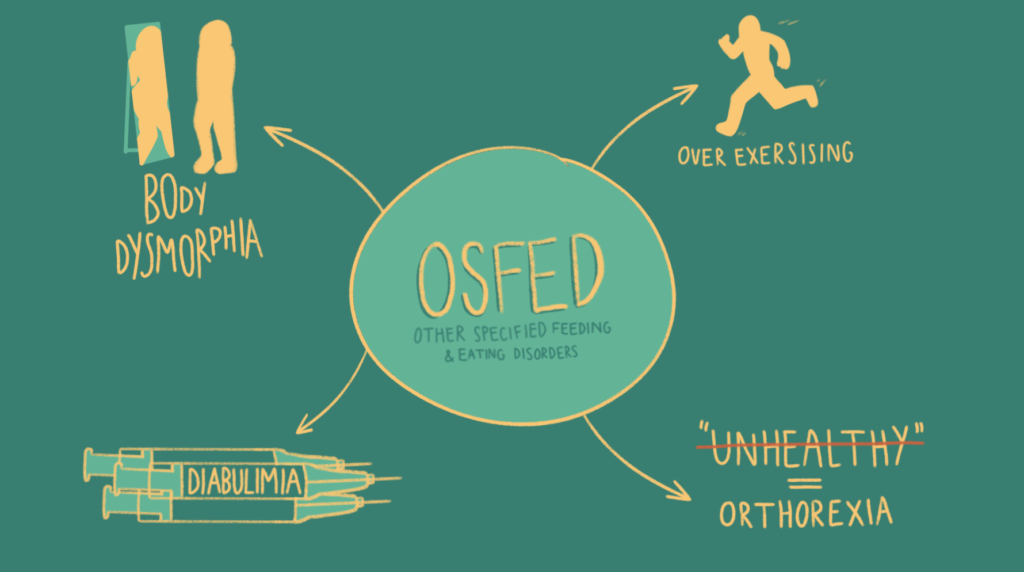OFSED (other Specified Eating Disorders)

Anorexia, bulimia, and binge eating disorder are diagnosed using a list of expected behavioural, psychological, and physical symptoms. Sometimes a person’s symptoms don’t exactly fit the expected symptoms for any of these three specific eating disorders. In that case, they might be diagnosed with an “other specified feeding or eating disorder” (OSFED).
This is very common. OSFED accounts for the highest percentage of eating disorders, and anyone of any age, gender, ethnicity or background can experience it. It is every bit as serious as anorexia, bulimia, or binge eating disorder, and can develop from or into another diagnosis. People suffering from OSFED need and deserve treatment just as much as anyone else with an eating disorder.
As OSFED is an umbrella term, people diagnosed with it may experience very different symptoms. Some specific examples of OSFED include:
- Atypical anorexia – where someone has all the symptoms a doctor looks for to diagnose anorexia, except their weight remains within a “normal” range.
- Bulimia nervosa (of low frequency and/or limited duration) – where someone has all of the symptoms of bulimia, except the binge/purge cycles don’t happen as often or over as long a period of time as doctors would expect.
- Binge eating disorder (of low frequency and/or limited duration) – where someone has all of the symptoms of binge eating disorder, except the binges don’t happen as often or over as long a period of time as doctors would expect.
- Purging disorder – where someone purges, for example by being sick or using laxatives, to affect their weight or shape, but this isn’t as part of binge/purge cycles.
- Night eating syndrome – where someone repeatedly eats at night, either after waking up from sleep, or by eating a lot of food after their evening meal.
Signs of OSFED to look out for might include:
- Overly focused on and/or secretive behaviour around food
- Self-consciousness when eating in front of others
- Low confidence and self-esteem
- Poor body image
- Irritability and mood swings
- Tiredness
- Social withdrawal
- Feelings of shame, guilt, and anxiety
- Difficulty concentrating
It’s not always obvious that someone has an eating disorder – remember, they are mental illnesses. If you’re worried about yourself or someone you know, even if only some of the signs on this page are present, you should still seek help immediately, as this gives the best chance of recovery. The first step is usually to make an appointment with the GP.














